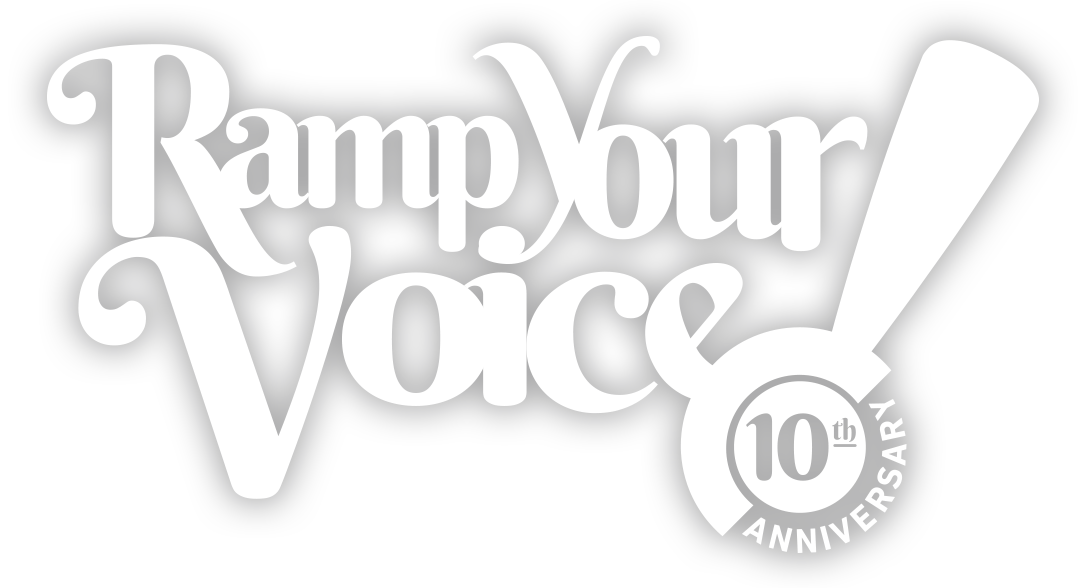Millennial Disabled Woman Ramps Her Voice: Bree
To celebrate the one-year anniversary of Ramp Your Voice! this month, I decided to reach out to the millennial disabled women I know, and ask them to share their disABILITY story. The responses I received were amazing; everyone was excited about sharing their empowering story for the special series, and I was elated to have their participation.
For the first installment of the “Millennial Woman Ramps Her Voice” series, I interviewed Bree, a fellow Millennial disabled woman of color I follow on social media. Bree is one of the few disabled women of color I have gotten to know through social media, and I am so thankful that she gave a bit of her time for the series.
Bree, tell the RYV! readers about yourself.
Hello, my name is Bree. I’m a 24 year -old black, queer, disabled, and chronically- ill woman. I grew up and am currently attending school in Minnesota near the Twin Cities area.
What is your disability(ies) status?
I am mostly a wheelchair user, but for short distances use arm crutches. I also have arthritis and chronic pain, and other symptoms involving my health as a result of Lupus (an autoimmune disease).
What are the misconceptions about those with your disability(ies)?
Well, strictly speaking about the physical disability, I think people commonly assume that wheelchair users lives are really sad and unfulfilling simply because we have to use a wheelchair. The whole “oh you’re in a chair that must suck” response you often get from people. But, the reality is although there are many barriers in society, I really like my chair and have a very positive relationship with it. It helps me, saves me energy, allows me to be independent, and do things that I otherwise couldn’t. It makes life doable.
What stereotypes about people with disabilities do you think are most harmful to our ability to be treated as equal in society?
So many things actually, but I would say one of the main ones though is similar to the one I talked about in the last question, which is just the stereotype that disabled people can’t possibly be happy or fulfilled with how we are, that we have to be fixed or cured in order to be accepted or “ truly happy.” I think that whole idea is very harmful because people then start to think of us in one of two ways, either we are pitied, “oh you poor thing,” which is not what we need. Or we are used as “inspiration” when really we are people just like everyone else doing everyday things. Both are dehumanizing and take away from the human aspect of us, that we are whole people and our lives don’t revolve completely around our disability. Yes, it is a big part, but we have hobbies, interests, friendships, relationships, a personality, feelings, and I feel like able -bodied people often forget that, and anytime you forget see people as whole human- beings, it creates harmful ideas and behavior toward that community.
How do you view yourself, in terms of your disability(ies) status?
Just within the last year I feel like I’ve really come to accept and embrace it as a part of me. It’s a process, though, for sure, especially when you don’t see yourself really represented anywhere. It’s an important part of my identity though, and it’s all part of who I am, and I really like the person that I’m growing up to be.
What is it important for PWDs to ramp their voices about their experiences, discrimination, & ableism?
I think talking about things like ableism, discrimination, and experience, the hard stuff in general that make people uncomfortable, is important because that’s how you find community and connect and realize you aren’t alone. And hopefully bringing some of these things to the light will make even people that aren’t directly affected see ways in which they can change problematic behavior toward the disabled community.
Do you “own” your disability status? How did you come to embrace your “perfectly imperfect” self?
I think more recently I have started to. Yes, I still have good days and bad days, but I’ve come a long way from not really wanting to talk about my disability, to blogging about it and more open to talking to other people about it. I can say I’m a better advocate for myself, than I was in the past.
Being a woman, disabled, and of color means that you endure challenges that others cannot fathom. What have you learned about overcoming such obstacles?
I still feel like I’m learning a lot about what it means to be a disabled woman of color in the world. The types of oppression that factor into those two things alone are really overwhelming, but picking apart the pieces is really important to understanding yourself. The biggest thing I’ve learned so far is just to make sure I’m surrounding myself with people who respect all parts of my identity not just one or the other, or who try to compartmentalize me for their own comfort.
If you could tell your younger self anything, what would it be?
That it’s ok to be angry, life is hard. Also, don’t try so hard to fit in. Being different and speaking out about your uniqueness is actually what will bring the most authentic and genuine things into your life.
What empowering message do you want to share with your fellow disabled sisters?
You are not alone. All parts of your experiences, feelings, and identity are important, and don’t let anyone tell you otherwise. You are beautiful ~
***
RYV! readers: If you would like to connect with Bree, you may leave a comment below, or send a message through the Contact page on the website. All messages will be forwarded to Bree for her to respond/connect.
